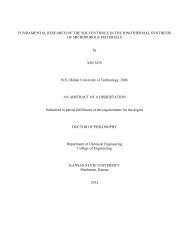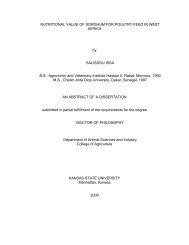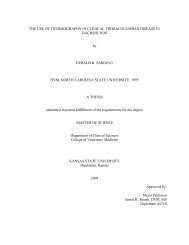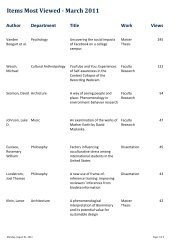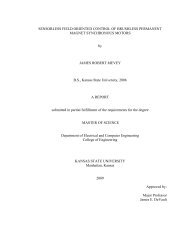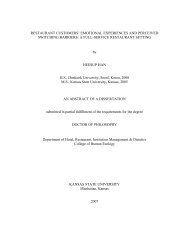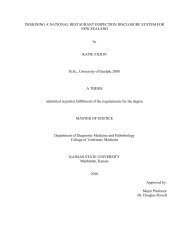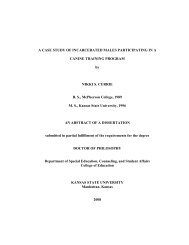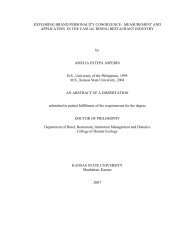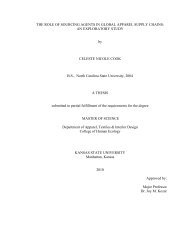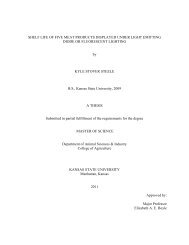Marimba and wind ensemble by david gillingham, xl
Marimba and wind ensemble by david gillingham, xl
Marimba and wind ensemble by david gillingham, xl
Create successful ePaper yourself
Turn your PDF publications into a flip-book with our unique Google optimized e-Paper software.
CHAPTER 3 - March from Eight Pieces for Four Timpani<br />
Biographical Information on the Composer<br />
Elliott Cook Carter Jr. was born in New York City on December 11, 1908. Eli Carter,<br />
Elliott’s paternal gr<strong>and</strong>father, started a lace importing business after the civil war <strong>and</strong><br />
subsequently left the company in the control of Elliott’s father. Consequently, Elliott was born<br />
into wealth, <strong>and</strong> enjoyed a quality education. The Musical Quarterly critic Richard Goldman<br />
wrote in 1957 that Carter, “is one of the few musicians, indeed one of the few persons of our<br />
time, who may still, in the Jacques Barzun’s sense of the phrase, be called an educated man.” 26<br />
As a child Carter attended the Horace Mann School, a private college preparatory school<br />
that was an experimental extension of Columbia University. Although Carter took piano lessons<br />
in his youth, he did not enjoy them. 27 Instead, Clifton Furnace, a teacher at Horace Mann,<br />
deserves much of the credit for cultivating young Carter’s interest in music through trips to<br />
contemporary music concerts. Furness introduced Carter to Charles Ives, who encouraged Carter<br />
to pursue a career in music. During these years at Horace Mann (1920-1926), Carter <strong>and</strong> Ives<br />
engaged in many discussions about music. When Carter graduated from Horace Mann, Ives<br />
wrote Harvard a recommendation letter on Carter’s behalf. 28<br />
Carter was accepted to Harvard, where he studied English Literature, receiving his<br />
bachelor’s degree in 1930. He remained at Harvard to pursue graduate studies in Music, much to<br />
the chagrin of his parents, who wanted him to enter the family business. At that time he studied<br />
harmony <strong>and</strong> counterpoint with Walter Piston, <strong>and</strong> composition with Gustav Holst. On<br />
recommendation from Walter Piston, Carter relocated to Paris to study composition with Nadia<br />
Boulanger at Ecole Normale de Musique following his second graduation from Harvard in 1932.<br />
Carter remained in Paris until 1935, at which time he returned to the United States to launch his<br />
career.<br />
26<br />
Richard Franko Goldman, “The Music of Elliot Carter,” The Musical Quarterly, 43 no. 2 (1957): 152.<br />
27<br />
Elliott Carter, “American Mavericks from American Public Media,” Interview <strong>by</strong> Alan Baker,<br />
(accessed March 24, 2008).<br />
28<br />
Elliott Carter <strong>and</strong> Jonathan W. Bernard ed., Collected Essays <strong>and</strong> Lectures, 1937-1995 (Rochester, NY,<br />
University of Rochester Press, 1997) 108.<br />
22



